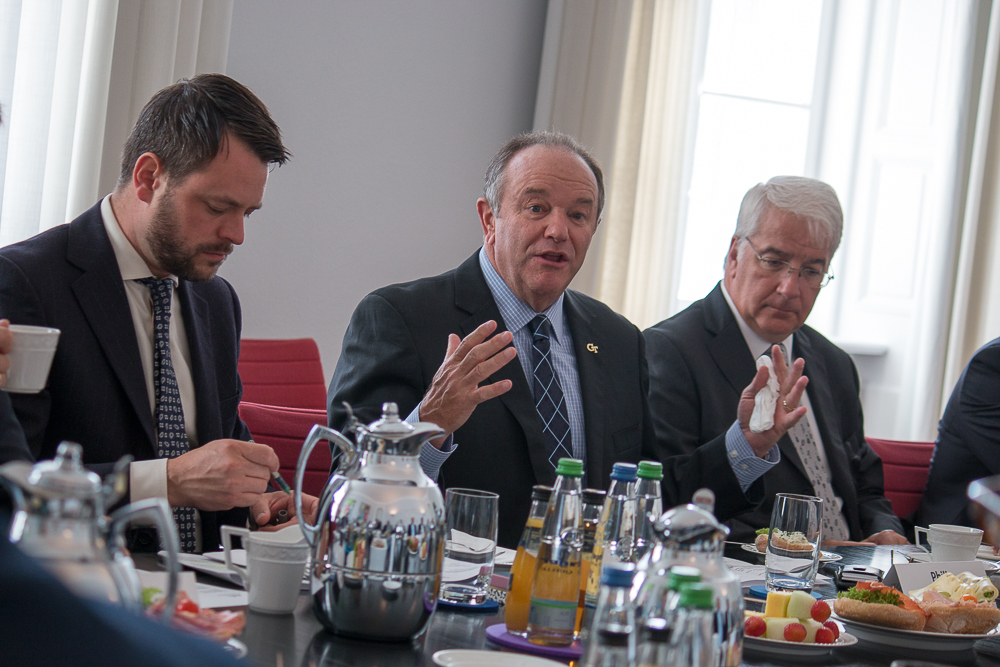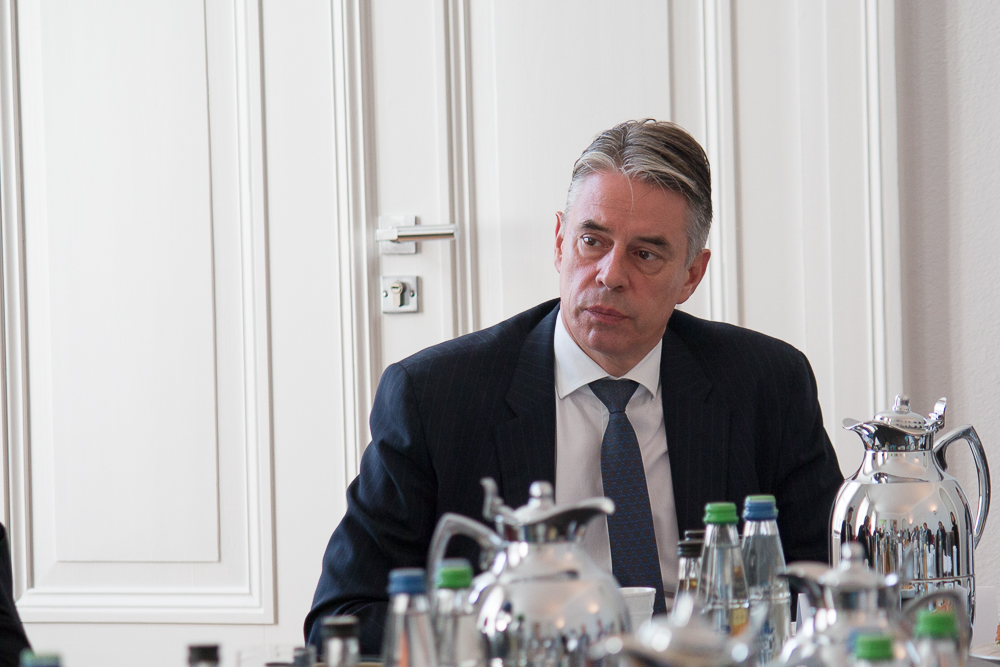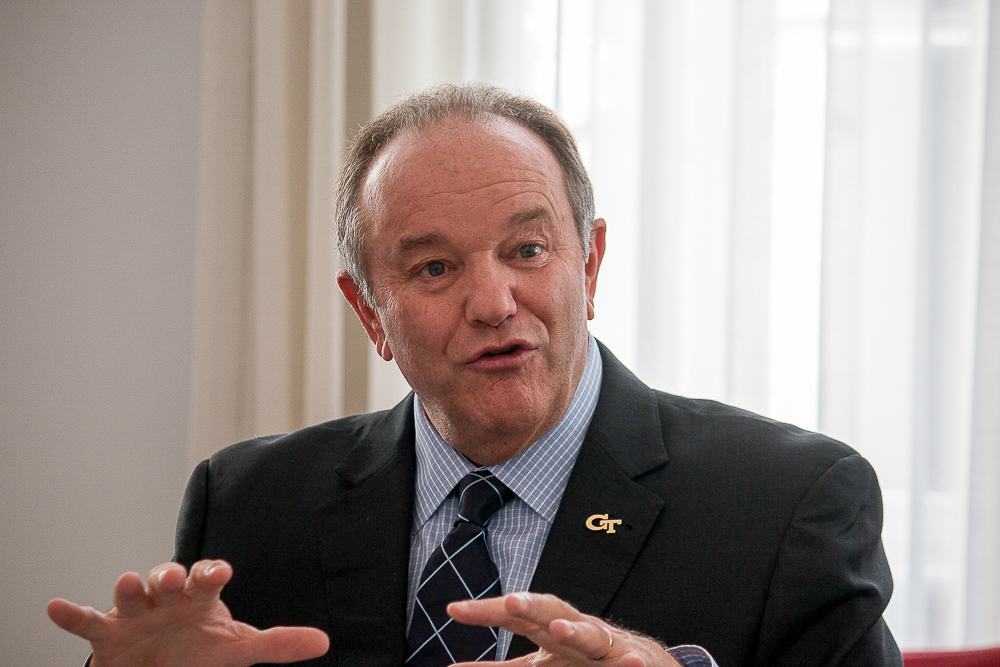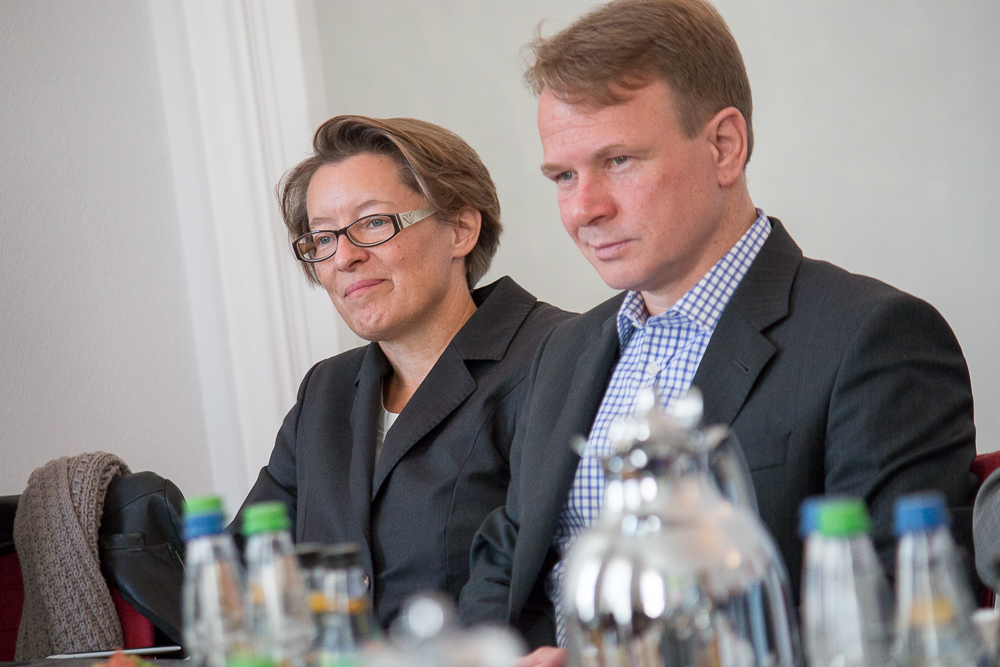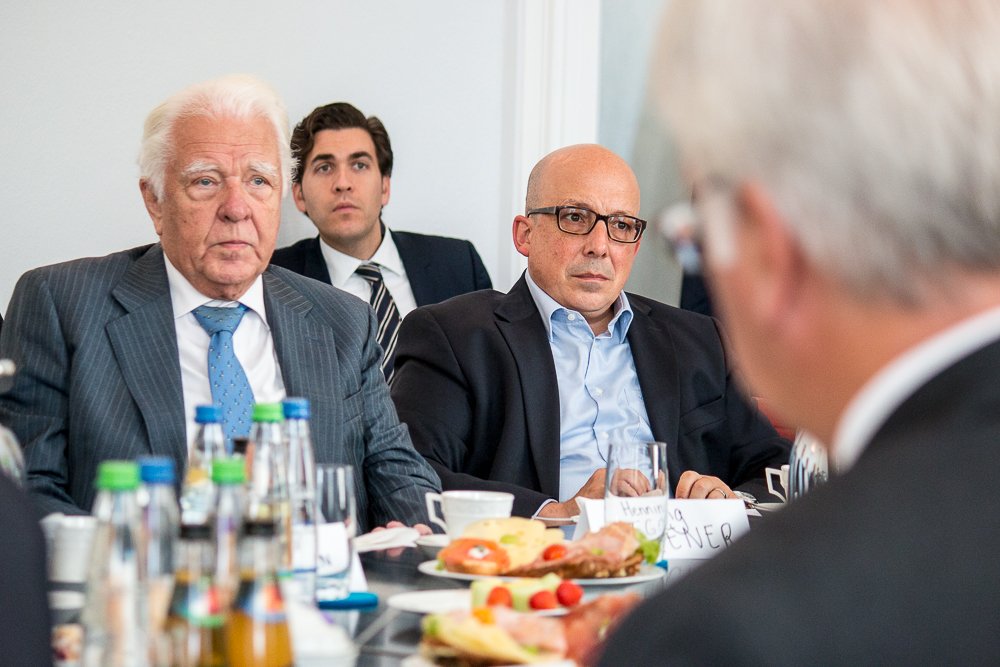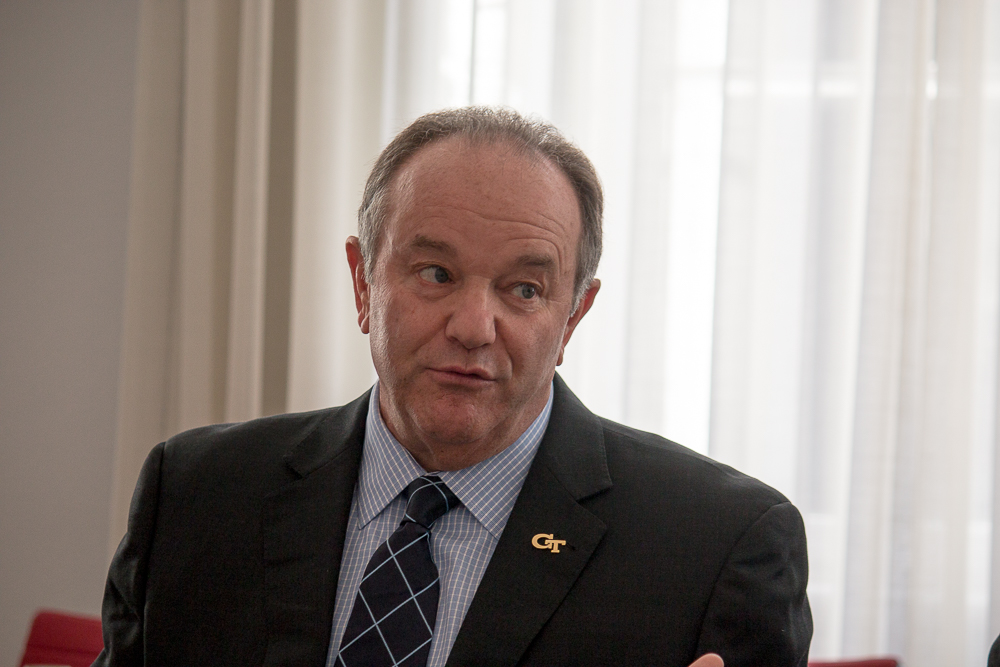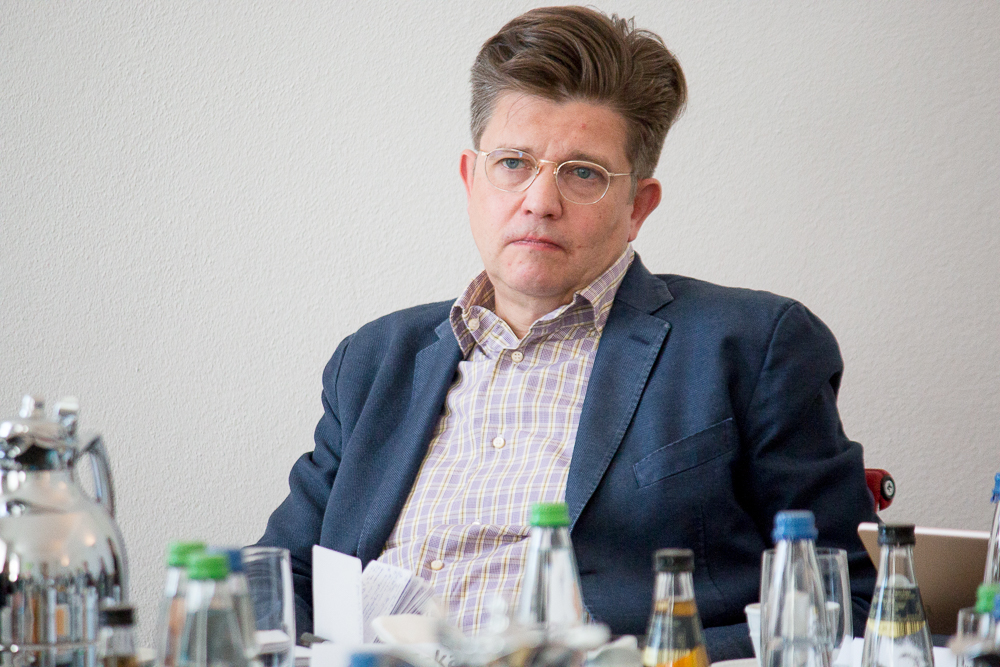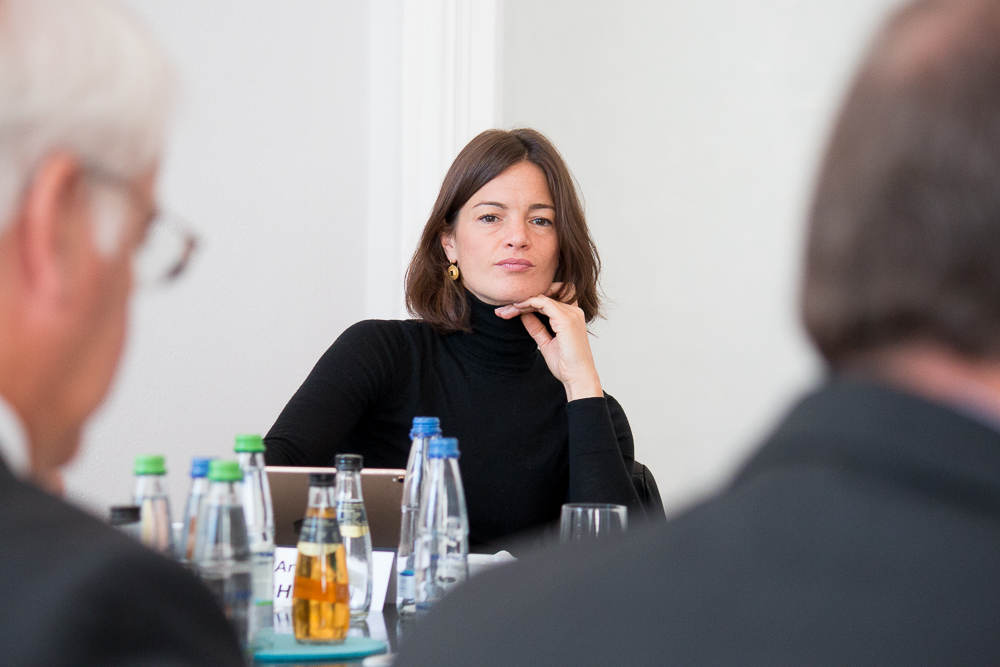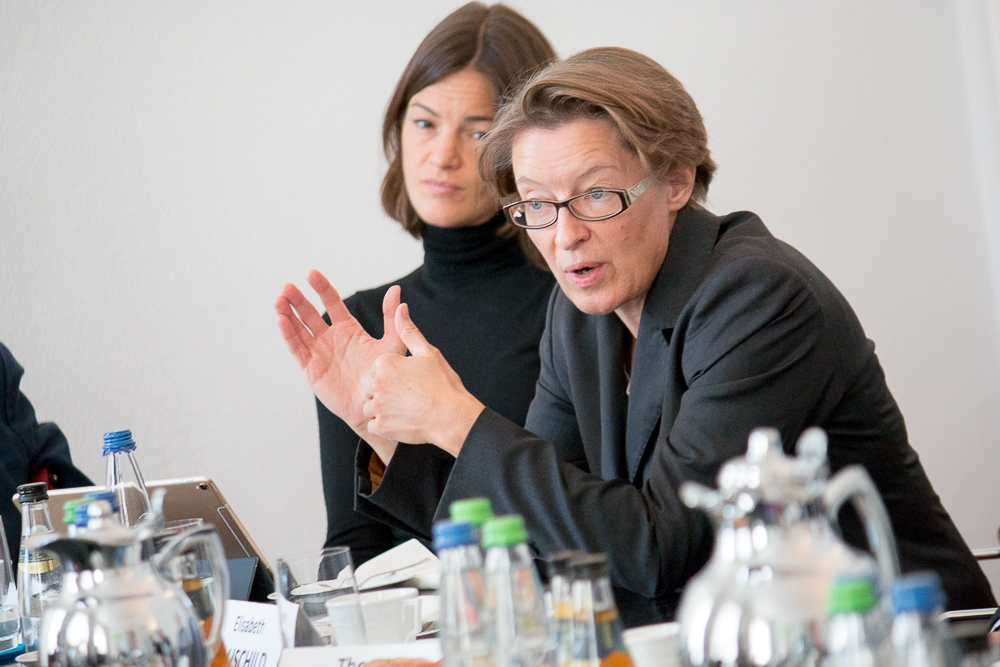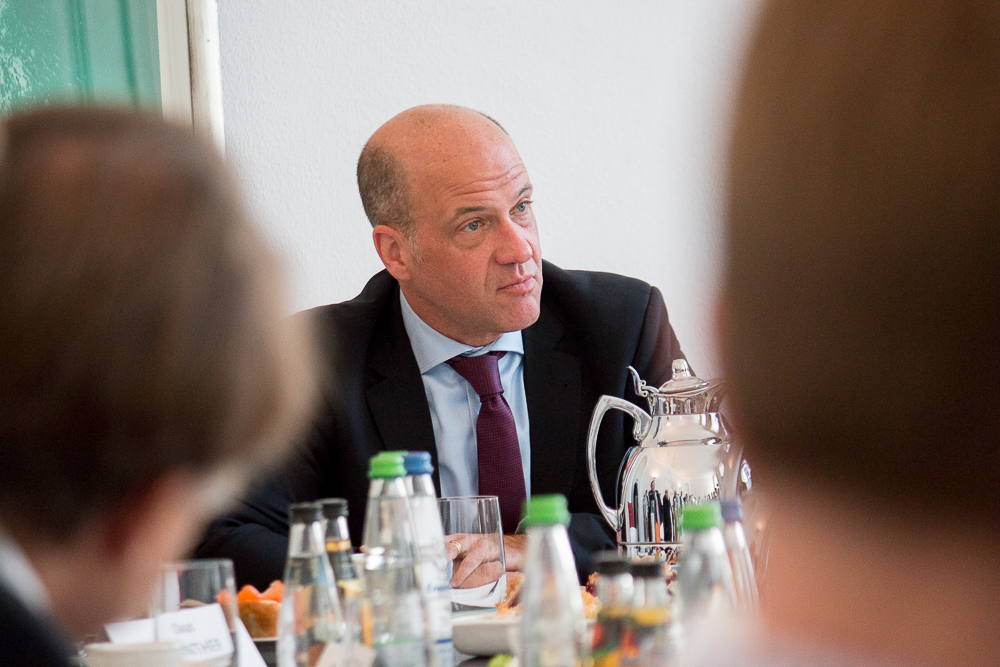“It is important for Germany to lead in NATO on the European landmass”
Interview: Robin Fehrenbach
General Philip Breedlove würde eine finanziell besser ausgestattete und besser vorbereitete Bundeswehr sehr begrüßen. Der frühere Kommandeur des United States European Command und ehemalige Supreme Allied Commander Europe der NATO (SACEUR) mahnt im Interview für das gesamte westliche Verteidigungsbündnis eine höhere Bereitschaft für eine Reihe von massiven und komplexen Bedrohungen an. Lesen Sie im Folgenden eine gekürzte und redaktionell überarbeitete Fassung unseres Podcasts „Atlantik-Brücke On The Record“ mit General Breedlove, den wir am Rande einer Diskussion mit ihm über die Zukunft der NATO produziert haben.
General Breedlove, how would you describe NATO’s current situation?
Our alliance is strong and it continues to be an important and successful alliance. However, I would also note that we are facing challenges now that are tough and we haven’t really faced some of these challenges in a long time. They force us to take a look at ourselves and to say: Are we ready for the threats that we see out there today? That is the biggest challenge to NATO.
What are the most pressing internal challenges which the Alliance is facing at the moment?
Our current challenges began when the Russians invaded Crimea and the Donbass. A lot of attention again began to be paid to this neighbor to the North and East that was threatening Ukraine. Many of the former Soviet Warsaw Pact nations felt threatened again. There was a very strong focus on the fact that Russia was not going to be a partner but might actually once again be an opponent. At the same time, we were seeing massive migration problems in the South emanating from Northern Africa and from the civil war in Syria where Bashar al-Assad was murdering his people. Large numbers of people began to flee Syria.
One of those really tough internal problems in NATO is that we had a division in worry, a division in concern in that we saw this belligerent Russia to the East and the North, and we saw this very tough societal problem of immigration being caused by problems in Syria and Northern Africa. NATO had to come to grips with it. At one point, we created the ‘Strategic Direction East’ and ‘Strategic Direction South’ to label these internal problems. One of the biggest internal concerns is that NATO has to be able to address all of the challenges to its nations.
One of those really tough internal problems in NATO is that we had a division in worry, a division in concern in that we saw this belligerent Russia to the East and the North, and we saw this very tough societal problem of immigration being caused by problems in Syria and Northern Africa.
What are other severe external threats which NATO has to cope with?
There are other threats that may emanate from the same places, but they are different kind of threats. Clearly, the cyber threat that we face today is different than two decades ago. Cyber is a tool that is being used in everyday conflicts. We are having issues in cyber with our opponent to the East every day. These sets of old tools that many label hybrid war – Mr. Gerasimov (the Chief of the General Staff of the Armed Forces of Russia; remark of Atlantik-Brücke) calling it ‘indirect means and asymmetric methods’ – are being used in a new way.
What worries you most?
Our nations are under a lot of pressure to address societal challenges and the policy solutions battle for the same budget that must be used to ensure that the militaries of NATO are ready to carry out the missions that they must accomplish. As the SACEUR it was clear to me that the readiness of our militaries in NATO was not adequate. It was not appropriate to the task that we saw from a resurgent and recalcitrant Russia. We need to address the readiness and recapitalization of our militaries.
As the SACEUR it was clear to me that the readiness of our militaries in NATO was not adequate. It was not appropriate to the task that we saw from a resurgent and recalcitrant Russia.
Being the former SACEUR and being equipped with the knowledge of your 39 years lasting military career, how do you assess the military exercise “Vostok 18” that was carried out by roughly 300.000 Russian soldiers as to the security of the NATO area?
First and foremost we should not be alarmed that Russia is exercising. We exercise. It is every nation’s right to exercise. The issue is that we must exercise responsibly. It is important that we are transparent in what we are doing, how long we are doing it, where we are doing it, who we are doing it with. Things that NATO advertises every day about its exercises. Vostok is an exercise towards the East. What worried me more as the SACEUR were the Zapad exercises. Those were the exercises done in the West. They were rarely open and transparent.
First and foremost we should not be alarmed that Russia is exercising. We exercise. It is every nation’s right to exercise. The issue is that we must exercise responsibly.
Do we witness the entering into a Russian-Sino phase at least on a military level when analyzing the participation of 3.000 Chinese soldiers in “Vostok 18”?
We should not be surprised. We as the West have issues working with Russia. We also have issues working with China. Geostrategically, why would we not expect them to possibly message us by collaborating? We also need to sit back and understand that the Russians have issues with the Chinese and the Chinese have issues with the Russians. It is not appropriate to overdramatize and to draw any major geostrategic conclusions from them exercising together.
Would you recommend any adaptations to NATO regarding its general strategy for the European security architecture?
We have been through two decades of fighting counter-insurgency and we have lost our focus on large scale war fighting operations. We do not have a focus yet on the size of operations that article 5 would require. We need to regain our ability through training and exercises. We need to regain our ability to understand how to command and control large formations against a dedicated opponent.
We need to regain our ability through training and exercises. We need to regain our ability to understand how to command and control large formations against a dedicated opponent.
Do you show understanding for Germany’s foreign and security policy that has not reached NATO’s 2-percent-goal yet?
I am not going to pretend to criticize or advise Germany. But the young Captain Breedlove who served during the Cold War here in Europe eight times and in Germany five times experienced that the Bundeswehr and the Luftwaffe of the Cold War was an incredibly capable military force. It was a leader on the European landmass. It is important for Germany to lead in NATO on the European landmass. I am not saying this at the exclusion of other large countries. But I would like to see that Germany’s recapitalization and retraining of its military forces show that leadership in NATO.
What role will NATO be playing in transatlantic security policy in ten years’ time?
The same role it played for the last seventy years. NATO is not perfect and it hasn’t kept perfect peace here in Europe. We have had some issues that we had to work through. But what NATO has done, is to prevent the kind of wars that ravaged Europe multiple times. NATO will continue to do that. NATO is a very capable and very important alliance. The mission that it has had for the last seventy years will be important for the next seventy years.

